Share
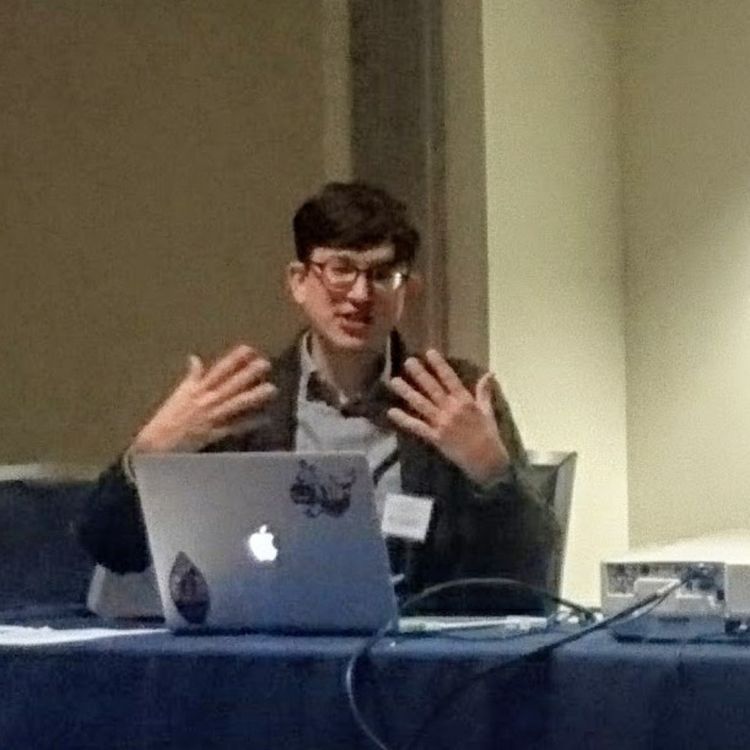
Earth to Philosophy
5: Eric Godoy
Eric Godoy is Assistant Professor in the Department of Philosophy, affiliated faculty in the Women’s and Gender Studies Program, and member of the Graduate Faculty at Illinois State University. His teaching and research focuses on ethics (especially environmental ethics) and political philosophy. He is particularly interested in how we construct the boundaries of our moral space, sympathy, collective agency, the politics of play, and ‘nature’ as a normative concept.
Episode reading:
When Dinosaurs Ruled the Earth- Eric's blog post about his Jurassic Park paper
Sharing Responsibility for Divesting from Fossil Fuels (2017) in Environmental Values (Mentioned but not discussed)
Additional Reading/Viewing
Jimmy Kimmel clip about Cecil the lion
Opening music is Where it Goes by Jahzzar.
More episodes
View all episodes
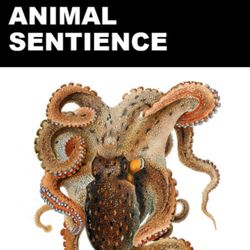
7. 7: Barbara J. King & Lori Marino
53:00||Season 1, Ep. 7This is the final episode of season 1!Barbara J. King is emerita professor of anthropology at the College of William and Mary and a freelance science writer. The author of six books including How Animals Grieve, Personalities on the Plate: The Lives and Minds of Animals We Eat, and Evolving God: A Provocative View on the Origins of Religion, she focuses on animal emotion and cognition, the ethics of our relating with animals, and the evolution of culture, language, and religion. Her work has appeared in Scientific American, NPR, Aeon, and Undark. Barbara is a frequent media guest on radio and TV shows, and has enjoyed doing science outreach at places like the 92nd St Y and the National Academy of Sciences’ Science & Entertainment Exchange “science speed dating” night. Watch her TED talk on grief and love in the animal kingdom here.Lori Marino is a neuroscientist and expert in animal behavior and intelligence, formerly on the faculty of Emory University. She received her PhD in biopsychology in 1995, and is internationally known for her work on the evolution of the brain and intelligence in dolphins and whales (as well as primates and farmed animals). She has published over 130 peer-reviewed scientific papers, book chapters, and magazine articles on marine mammal biology and cognition, comparative brain anatomy, self-awareness in nonhuman animals, human-nonhuman animal relationships, and the evolution of intelligence. She is also an expert on marine mammal captivity issues such as dolphin assisted therapy and the educational claims of the zoo and aquarium industry. You can find her on the The Whale Sanctuary Project's website here.Episode reading: Octopus Minds Must Lead to Octopus Ethics (2019) by Barbara J. King and Lori Marino in Animal Sentience: An Interdisciplinary Journal on Animal Feeling 26(14)Additional reading:Deception in the Animal Kingdom: Homo sapiens is not the only species that lies (2019) by Barbara J. King for Scientific AmericanCalling Team Cephalopod: Why Octopuses Could Never Disappoint (2018) by Barbara J. King for National Public RadioOctopuses are Marvels to Watch, and, for Some, to Eat Alive (2016) by Barbara J. King for National Public RadioOpening music is Where it Goes by Jahzzar.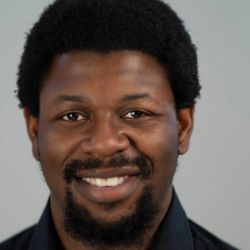
6. 6: Olufemi Taiwo
52:24||Season 1, Ep. 6Olufemi Taiwo is Assistant Professor of Philosophy at Georgetown University. His theoretical work draws liberally from German transcendental philosophy, contemporary philosophy of language, contemporary social science, histories of activism and activist thinkers, and the Black radical tradition. Femi is currently writing a book entitled Reconsidering Reparations that considers a novel philosophical argument for reparations and explores links with environmental justice. He also writes public philosophy, including articles exploring intersections of climate justice and colonialism.Episode reading: How a Green New Deal Could Exploit Developing Countries (2019) from SalonClimate Colonialism & Large-Scale Land Acquisitions (2019) Guest blog post on the Carnegie Climate Governance Initiative's Blog Opening music is Where it Goes by Jahzzar.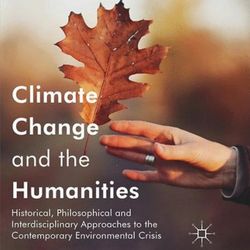
4. 4: Emily Brady
58:05||Season 1, Ep. 4Emily is Professor of Philosophy at Texas A&M University. She also holds the Susanne M. and Melbern G. Glasscock Director’s Chair in the Glasscock Center for Humanities Research. Before coming to Texas A&M, she was Professor of Environment and Philosophy at the University of Edinburgh, where she was one of Claire's supervisors.You can find Emily's website here.Episode reading: Climate Change and Future Aesthetics’, in Climate Change and the Humanities, ed. A. Elliott, J. Cullis, and V. Damodaran (London: Palgrave)Additional Reading:Emily's blog post on John Muir and the Aesthetics of Cold Environments is online at Aesthetics for Birds.Opening music is Where it Goes by Jahzzar.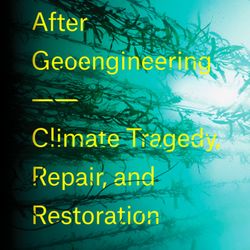
3. 3: Holly Jean Buck
43:36||Season 1, Ep. 3Holly Jean Buck, postdoctoral fellow at UCLA, joined Andrea to discuss her book, After Geoengineering: Climate Tragedy, Repair, and Restoration, and her paper "Geoengineering: Re-making Climate for Profit or Humanitarian Intervention?"Holly is a postdoctoral research fellow at UCLA’s Institute of the Environment and Sustainability. She’s interested in how communities can be involved in the design of emerging environmental technologies. She works at the interface of environmental sociology, international development, and science and technology studies. Her diverse research interests include agroecology and carbon farming, new energy technologies, artificial intelligence, and the restoration of California’s Salton Sea.(We originally recorded this in 2018, before her book was out. It's now out from Verso Press.)Episode reading: "Geoengineering: Re-making Climate for Profit or Humanitarian Intervention?" (2012)Prelude and Chapter 1 of After Geoengineering: Climate Tragedy, Repair, and Restoration (2019)Additional Links:Holly's Twitter feedOpening music is Where it Goes by Jahzzar.
2. 2: Mateusz Tokarski
48:56||Season 1, Ep. 2Mateusz Tokarski joins us to revisit the most thrilling parts of his dissertation Wild at Home: The Ethics of Living with Discomforting Wildlife, which he defended in 2017. We talk about Val Plumwood's famous (well, in environmental philosophy circles) near-death experience with a crocodile, among other things.Mateusz is an editor, writer, translator, and researcher. He holds a BA in Film and Theatre Studies from London Metropolitan University, a MA in semiotics (Aarhus University, Denmark/Tartu University, Estonia), and in September 2017 obtained a PhD in philosophy with a thesis on human-animal relations (Radboud University Nijmegen, Netherlands)You can find Mateusz's complete dissertation, as well as other papers and presentations, on his academia page.Episode reading: Chs. 4 & 5 of Mateusz's dissertation: Wild at HomeAdditional Reading:"Being Prey," Val Plumwood - available online hereOpening music is Where it Goes by Jahzzar.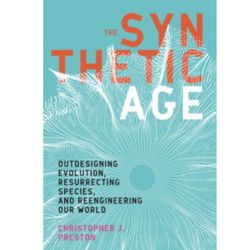
1. 1: Christopher Preston
47:04||Season 1, Ep. 1Our first episode! We speak with Christopher Preston about his most recent book, The Synthetic Age (MIT Press, 2018). Christopher is Professor of Philosophy and a Research Fellow in the Mansfield Center's Program on Ethics and Public Affairs at the University of Montana (and he's also Andrea's former M.A. supervisor).Christopher teaches and writes in environmental philosophy at the University of Montana, Missoula. Much of his research connects to the idea of the Anthropocene, the epoch in which human influence on the planet is everywhere. He studies emerging Anthropocene technologies for their impact on the human-nature experience. He also has interests in restoration and rewilding, exploring differences between Western European and U.S. approaches to wildlife and landscape process. Despite the growing influence of humans on all natural systems, Christopher still believes in wildness!You can find his blog about Nature 2.0 at plastocene.com, and you can buy his book here: The Synthetic Age: Outdesigning Evolution, Resurrecting Species, and Reengineering Our World.Episode Reading: The Synthetic Age, Christopher PrestonSuggested Reading:Christopher's Plastocene BlogOpening music is Where it Goes by Jahzzar.